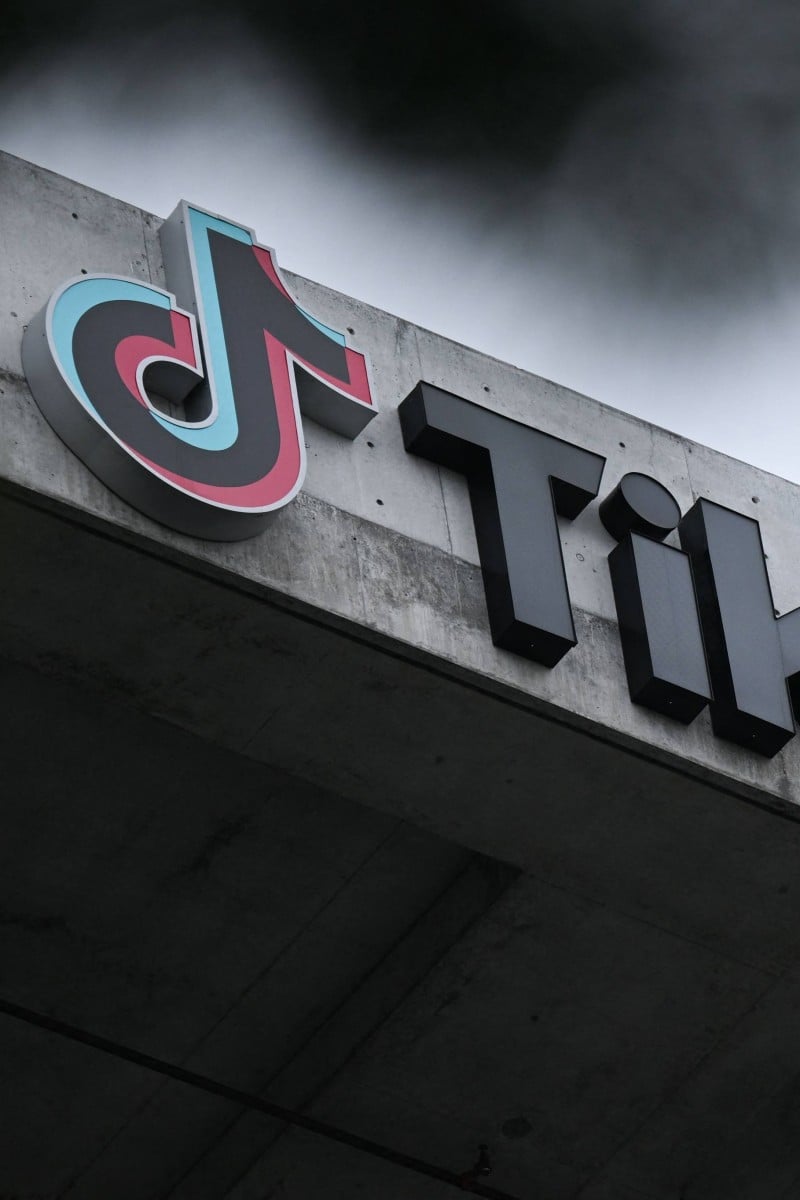
- Video-sharing app argued that the ban, set to start in 2024, violates the constitutionally protected right to free speech
- Owned by Chinese firm ByteDance, the platform has been accused of allowing Beijing to spy on users, which the company denies
 TikTok on Monday filed suit in US federal court to stop the state of Montana from implementing an overall ban on the video sharing app. Photo: AFP
TikTok on Monday filed suit in US federal court to stop the state of Montana from implementing an overall ban on the video sharing app. Photo: AFPTikTok on Monday filed suit in US federal court to stop the state of Montana from implementing an overall ban on the video-sharing app.
The unprecedented ban, set to start in 2024, violates the constitutionally protected right to free speech, TikTok argued in the suit.
“We believe our legal challenge will prevail based on an exceedingly strong set of precedents and facts,” a TikTok spokesperson told Agence France-Presse.
How TikTok’s Bold Glamour filter can impact teens’ body image
Montana Governor Greg Gianforte signed the unprecedented prohibition into law on May 17.
Gianforte said on Twitter that he endorsed the ban to “protect Montanans’ personal and private data from the Chinese Communist Party.”
“The state has enacted these extraordinary and unprecedented measures based on nothing more than unfounded speculation,” TikTok contended in its lawsuit.
Five TikTok users last week filed a suit of their own, calling on a federal court to overturn Montana’s ban on the app, arguing that it violates their free speech rights.
The state is trying to exercise national security power that only the federal government can wield and is violating free speech rights in the process, both suits filed against Montana argue.
TikTok called on the federal court to declare the Montana ban on its app unconstitutional and block the state from ever putting it into effect.
Gen Z is reframing the news for TikTok
“Montana can no more ban its residents from viewing or posting to TikTok than it could ban the Wall Street Journal because of who owns it or the ideas it publishes,” the lawsuit filed by TikTok users contends.
The app is owned by Chinese firm ByteDance and has been accused by some US politicians of being under the authority of the Chinese government and acting as a way for Beijing to spy on users, something the company furiously denies.
Montana became the first US state to ban TikTok, with the law set to take effect next year as debate escalates over the impact and security of the popular video app.
The prohibition will serve as a legal test for a national ban of the platform, something that lawmakers in Washington are increasingly calling for.
The Montana ban makes it a violation each time “a user accesses TikTok, is offered the ability to access TikTok, or is offered the ability to download TikTok.”
Each violation is punishable by a US$10,000 fine every day it takes place.
Under the law, Apple and Google will have to remove TikTok from their app stores and companies will face possible daily fines.
The prohibition will take effect in 2024, but would be voided if TikTok is acquired by a company incorporated in a country not designated by the United States as a foreign adversary, the law reads.
TikTok search results rife with misinformation about climate change, Covid-19 and war in Ukraine
The cases should move quickly in court, since they centre on points of law that don’t require lots of evidence to be gathered, according to Carl Tobias, a law professor at the University of Richmond in the US state of Virginia.
“There are very compelling constitutional arguments that favour the plaintiffs,” Tobias said.
“First is free speech, and second is if the ban is justified by national security, that is a matter for the federal government not any individual state.”
The law is the latest skirmish in duels between TikTok and many Western governments, with the app already banned on government devices in the United States, Canada and several countries in Europe.